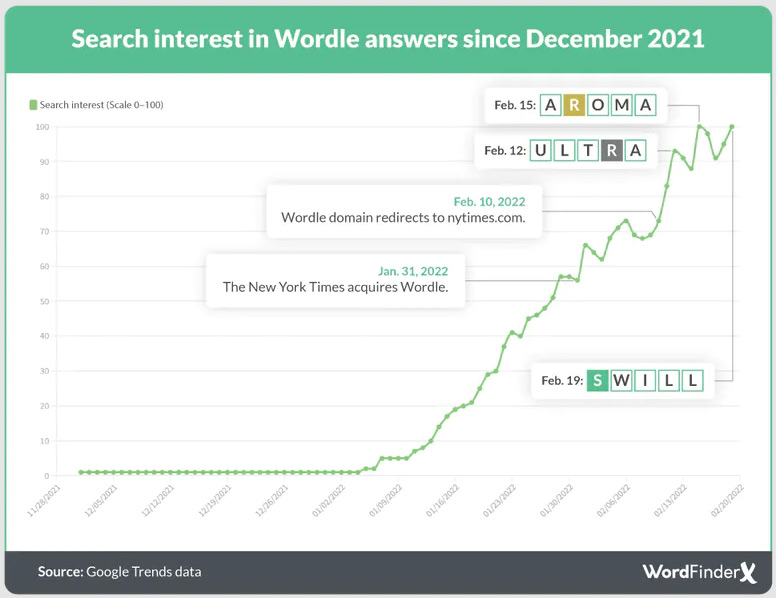Everyone is cheating on Wordle, report claims – is The New York Times to blame?
A new study claims we're all cheating on Wordle after noticing that Google searches for "today's wordle" rose 196% since The New York Times acquired the word-guessing game.
The report comes from WordFinder, a word puzzle site that helps word-game fans find answers for games like Scrabble, Words with Friends, and Wordle.
The chart, which we've embedded below, does appear (at least initially) to offer compelling evidence. Look at how that fever line rose since January of this year. After The New York Times acquisition in late January, the trend of people searching for "today's wordle" continues its bumpy climb

Difficult words like SWILL and AROMA saw notable spikes in people giving in and searching Google for the result. They might have done so with today's (Wordle #255) brain twister.
Looked at another way, though, we see evidence of something completely different.
The trajectory of the rise, which started when Wordle gained international prominence, has, to our eyes, not changed at all. The spikiness, though is something new. There are more peaks and valleys after The New York Times's purchase, which might bolster claims that the newspaper and media company (and Sunday Crossword Puzzle generator) has, in fact, been making the game harder. Those peaks represent harder words and more searches for answers.
Before The Times, the trend line is a smooth rise. After, it's jaggier than the Himalayas.
This is only one company's interpretation of search data and should not be used to extrapolate how the whole world plays Wordle. Still, it is surprising to see how many people do give up and, how The New York Times might've done more than just remove obsure and UK-centric words from the game. It might've been making Wordle a little harder, too.
The report does offer some other Google Search trends findings, including that people are early-morning Wordlers, with most of the result searchers ("cheaters") giving up between 7 and 8 AM in the morning. A lot of these people live in the state of New Hampshire: Live free or Wordle, indeed.
Post a Comment for "Everyone is cheating on Wordle, report claims – is The New York Times to blame?"